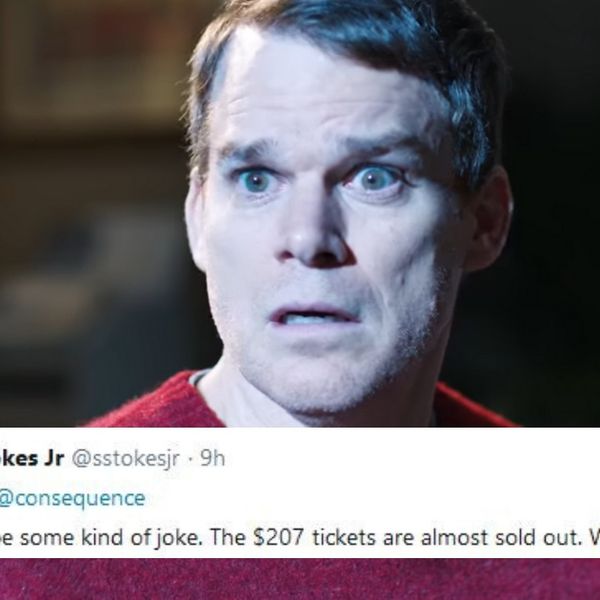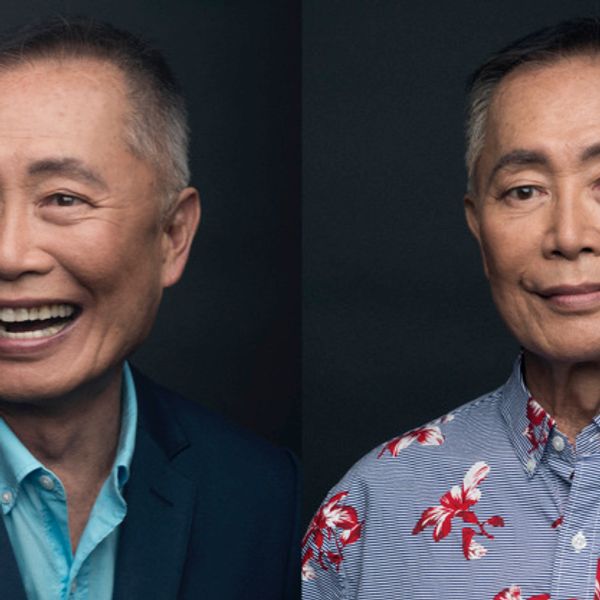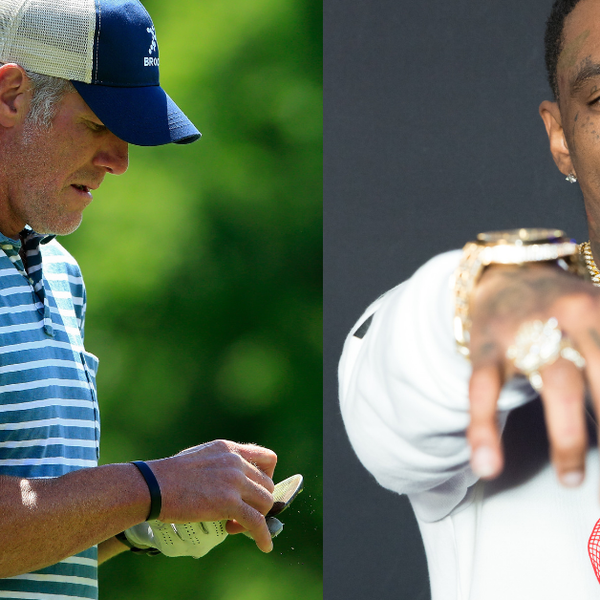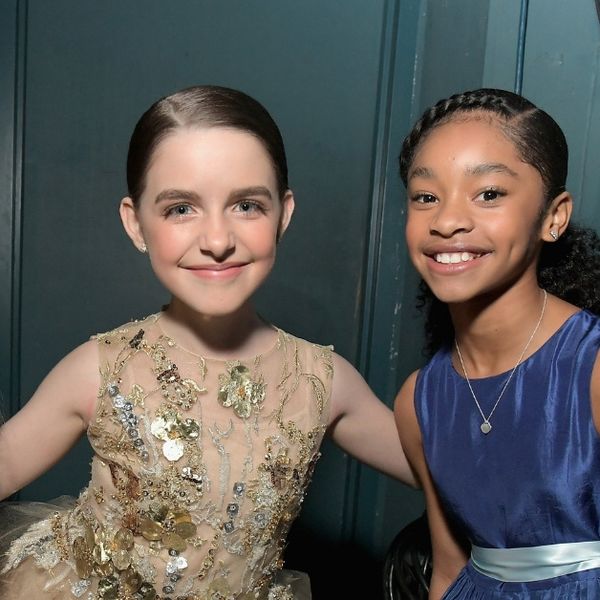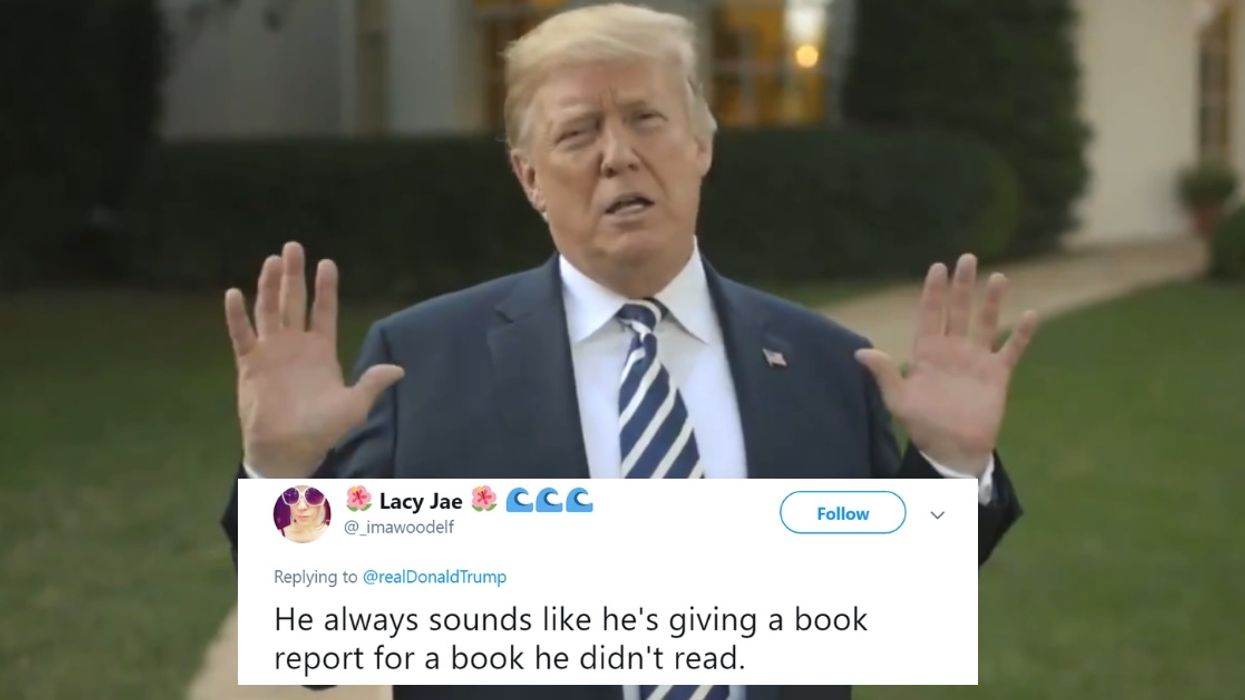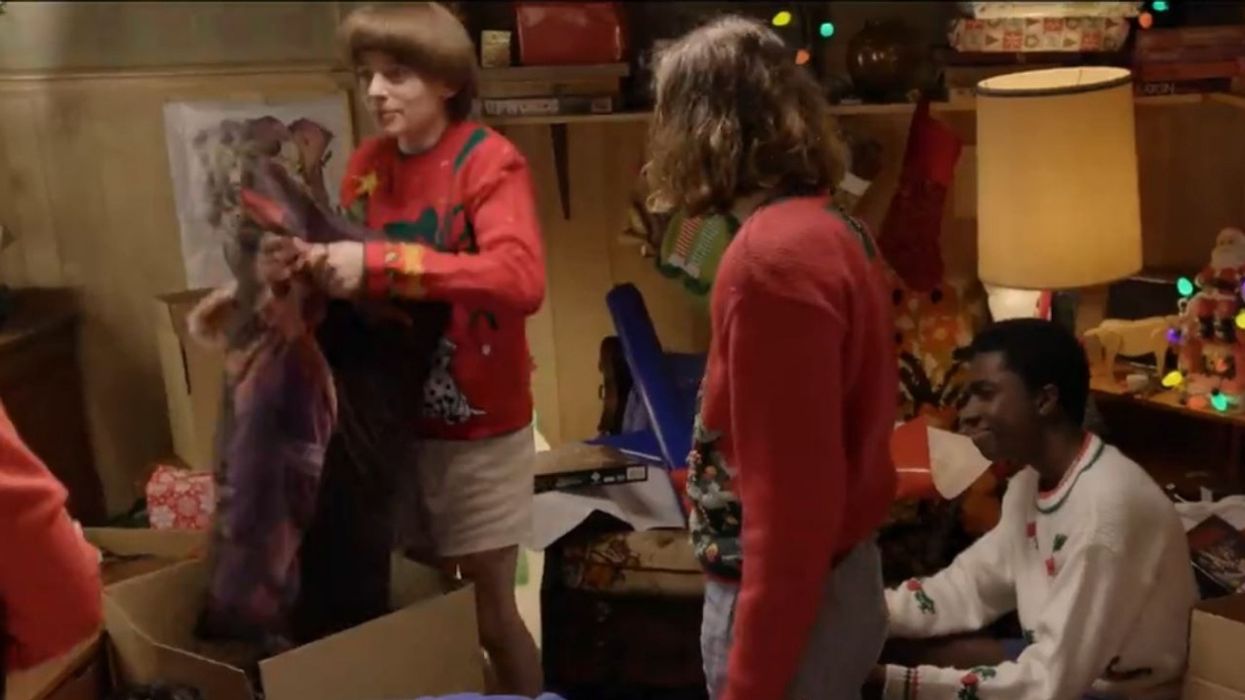July, 2001, LOS ANGELES - Tom Brokaw called them the "greatest generation" -- the men and women who served in the U.S. military during World War II. They fought against the forces of fascism defending the ideals of our democracy. We as Americans are deeply indebted to that generation.
I have a profoundly special debt to an extraordinary collection of men and women of that group of remarkable Americans. They are the Japanese Americans of the World War II generation.
Two events occurred last month on both coasts of this country that underscored the importance of my debt.
In Los Angeles, we commemorated the second year of the dedication of the "Go For Broke" Memorial.
This giant black granite cylinder, angled toward the southern sun, has the names of all Japanese Americans who served in the U.S. military etched into it. The "Go For Broke" name of the memorial comes from the motto of the all Japanese American unit, the 442nd Regimental Combat Team. "Go For Broke" was their battle cry. They went "for broke" as they fought on the battlefields of Italy. They faced the fierce resistance of the Nazis in the Rhineland campaign in France and went "for broke." Their "Go for broke" determination helped crack the Gothic Line in the mountains of Apennines. The 442nd suffered the highest casualty rate and was the most decorated unit in military history. They gave it their all. This "Go For Broke" monument is also a tribute to all Japanese Americans who served in the U.S. armed forces -- in the Military Intelligence Service, in the 100th Infantry Battalion as well as with the 442nd. They are all amazing American heroes.
What makes their gallantry so extraordinary is that they served despite initially being classified as "enemy non aliens" by their own government simply because they "looked like the enemy." What makes them so amazing is that they wore the same uniform as that worn by the soldiers guarding over their families incarcerated behind the barbed wires of American concentration camps back in the U.S. What makes my debt to them so profound is that their valor under these incredible circumstances transformed America for me and my generation. These men and women unquestionably added another dimension to the meaning of Americanism. President Harry Truman, greeting them on the White House grounds on their return to the U.S. stated, "You not only fought the enemy but you fought prejudice -- and you won."
After the commemoration ceremony of the "Go For Broke" Memorial, I chatted with the veterans, proudly wearing their Veterans of Foreign Wars caps. Many were now unsteady in their steps. A few were in wheelchairs. Their thin and reedy voices had few words. They were modest in receiving our gratitude. The passage of time had altered the robust soldiers they once were. But I could see their pride beaming from their faces.
What they did over half a century ago had transformed this nation. Because of their incredible gallantry, their immigrant parents could, for the first time, become naturalized American citizens; their sons and daughters today are able to rise as far as their abilities could take them; live wherever they could afford to live and participate fully in the life of America. What they did on the battlefields of World War II gave substance to the campaign to win redress for Japanese Americans for their incarceration during that war. They indisputably made this nation a better democracy for all Americans. They did this with their courage, their blood -- and the lives of their buddies. The gratitude we felt was as big and as solid as the great granite memorial that stood in front of us.
I walked up to the monument and found the name of the U.S. Senator from Hawaii, Daniel Inouye.
 He left his right arm on a bloody battleground in Italy. Last year, I attended the White House ceremony where, together with 21 others, he received a much belated Medal of Honor from President Bill Clinton for his heroism of over 50 years ago. Also on the monument I found the name of my mother's late cousin, Kay Kashiwabara. I touched their names with my fingertips and felt the grainy earthiness of the engraving. I stepped back to view the whole massive expanse of names etched onto the granite -- hundreds and hundreds of Japanese American names. Some died in battle. Some carried their wounds of battle throughout their lives. All served as Americans under the most incredible of circumstances. Staring at all those names, I whispered a silent "thank you."
He left his right arm on a bloody battleground in Italy. Last year, I attended the White House ceremony where, together with 21 others, he received a much belated Medal of Honor from President Bill Clinton for his heroism of over 50 years ago. Also on the monument I found the name of my mother's late cousin, Kay Kashiwabara. I touched their names with my fingertips and felt the grainy earthiness of the engraving. I stepped back to view the whole massive expanse of names etched onto the granite -- hundreds and hundreds of Japanese American names. Some died in battle. Some carried their wounds of battle throughout their lives. All served as Americans under the most incredible of circumstances. Staring at all those names, I whispered a silent "thank you."
The other event happened in our capitol, Washington, D.C. It was the commemoration of another monument to Japanese Americans, the National Japanese American Memorial. It is located on a triangular plaza just north of the Capitol. I could not be there in person for this ceremony, but I most certainly was there in spirit.
The granite wall of this memorial bears, not only the names of those Japanese American soldiers who perished in battle, but, as well, the names of all ten U.S. concentration camps scattered throughout the country from California to Arkansas where Japanese Americans were incarcerated during the war. The wall also carries quotations from distinguished Japanese Americans such as Senator Inouye, Cabinet Secretary Norman Mineta, and Congressman Robert Matsui.
The Memorial also holds a quote from the controversial wartime Executive Secretary of the Japanese American Citizens League, Mike Masaoka.
 His is a stirringly patriotic quote. In part, it reads, "I am proud that I am an American citizen of Japanese ancestry, for my very background makes me appreciate more fully the wonderful advantages of this nation. I believe in her institutions, ideals and traditions; I glory in her heritage; I boast of her history; I trust in her future." He wrote this in 1940. It was a time of limited opportunities for minorities; educated Japanese Americans were working at fruit stands. It was a time of restrictive housing covenants that gave rise to the Little Tokyo and Japantown racial ghettos. And it was a time when the dark cloud of the internment of Japanese Americans was looming ominously on the horizon. Indeed, when Executive Order 9066 ordered the internment, Masaoka was so eager to "prove" his loyalty that he cooperated with the government in the mass removal of Japanese Americans. The anguished irony of his super patriotic words heightened the angst and the division that the internment order wreaked on the Japanese American community.
His is a stirringly patriotic quote. In part, it reads, "I am proud that I am an American citizen of Japanese ancestry, for my very background makes me appreciate more fully the wonderful advantages of this nation. I believe in her institutions, ideals and traditions; I glory in her heritage; I boast of her history; I trust in her future." He wrote this in 1940. It was a time of limited opportunities for minorities; educated Japanese Americans were working at fruit stands. It was a time of restrictive housing covenants that gave rise to the Little Tokyo and Japantown racial ghettos. And it was a time when the dark cloud of the internment of Japanese Americans was looming ominously on the horizon. Indeed, when Executive Order 9066 ordered the internment, Masaoka was so eager to "prove" his loyalty that he cooperated with the government in the mass removal of Japanese Americans. The anguished irony of his super patriotic words heightened the angst and the division that the internment order wreaked on the Japanese American community.
Masaoka's tortured patriotism had a balancing counterpart of bold Americanism. They were the young men who took a courageous stand on the fundamental principles of this nation. When they were ordered to serve in the U.S. military while interned, they took the position that they would serve willingly if they could report to their hometown draft boards and with their families back in their own homes.
 But they refused to go from behind the barbed wire fences of incarceration leaving their families behind in U.S. concentration camps. It was an audacious stand. For this principled stance, they were tried in court, found guilty of draft resistance and sent to federal penitentiaries. After the war and after they were exonerated, many of them served with honor in the Korean War. Although these patriots' names are not on the Memorial, by the inclusion of Mike Masaoka's ironically extravagant quotation, I am reminded of and honor the gutsy integrity of these young men who resisted military service on very American principles.
But they refused to go from behind the barbed wire fences of incarceration leaving their families behind in U.S. concentration camps. It was an audacious stand. For this principled stance, they were tried in court, found guilty of draft resistance and sent to federal penitentiaries. After the war and after they were exonerated, many of them served with honor in the Korean War. Although these patriots' names are not on the Memorial, by the inclusion of Mike Masaoka's ironically extravagant quotation, I am reminded of and honor the gutsy integrity of these young men who resisted military service on very American principles.
I owe my America to all these men and women whom we honor with the two memorials on both coasts of this nation. I take my inspiration from their contributions together with all those who have contributed to the making of this country. The greatness of this nation is that it is a constant work in progress guided by the core ideals of our Constitution. The challenge of this nation is that we all can and must contribute to this great work in progress to make it a better and truer democracy.
People Are Roasting Trump Over His Mind-Numbing Observation About The Wetness Of Water 😂
Donald Trump thanked the first responders who came to the aid of victims of Hurricane Florence. The storm devastated portions of North Carolina, dumping massive amounts of rain and damaging millions of dollars in property. Many natural areas were destroyed, some farmers lost everything and more than a few people have been left homeless. The first responders after this massive storm were literal life savers, and Trump was absolutely right to thank them. Unfortunately, the sentiment of his message was lost for many people because he didn't seem to put any effort or preparation into what he was saying. Then, in the middle of his off-the-cuff message, he confused everyone by talking about the wetness of water.
As Trump described the storm and the importance of first responders he told the world:
This is a tough hurricane, one of the wettest we've ever seen from the standpoint of water. Rarely have we had an experience like it and it certainly is not good.
The Tweet went out in the middle of the day on Tuesday, September 18th. At the time of this article, it hasn't even been up for 24 hours and already has over 13,000 comments. Many of them pointed out how Trump didn't even seem to try...
and how asinine his description was.
We don't know if Trump will continue to address the public by releasing these kinds of videos, or if they will continue to be as unrehearsed as this one is. We assure you, if they are, Twitter will have plenty to say about it.
H/T: Huffington Post, Twitter
The Kids From 'Stranger Things' Wrapped Presents For Superfans—And Did A Delightfully Terrible Job 😂
When it comes to giving gifts, not all celebrities are as crafty as Taylor Swift, but that didn't stop the adorable stars of Netflix's Stranger Things from giving it a try.
In a recently released video from Netflix, actors Millie, Finn, Noah, Caleb, Gaten, and Sadie got together for some holiday cheer and to wrap gifts for fans. But kids will be kids, even if they star in a hit television show. Watch as chaos ensues.
Fans loved every moment, even if the kids weren't the greatest wrappers.
@Stranger_Things I love seeing them mess around with each other.— Abby! (@Abby!) 1545318707.0
@doublejoywilson https://t.co/qgFgkZpTxQ— Stranger Things (@Stranger Things) 1545318849.0
@realrevella https://t.co/G5Er8pydg5— Stranger Things (@Stranger Things) 1545318801.0
@themallratss we do what we can https://t.co/POBMVbXfZS— Stranger Things (@Stranger Things) 1545319099.0
@Stranger_Things They’re a cute mess 😂— Janet ⁷✜🪐 (@Janet ⁷✜🪐) 1545318854.0
@minseokjin94 https://t.co/Dr4Y4xFYyM— Stranger Things (@Stranger Things) 1545318939.0
@Stranger_Things Thanks for the gif...they’re a MESS mess https://t.co/cG5ODdPDf0— Janet ⁷✜🪐 (@Janet ⁷✜🪐) 1545319571.0
@pvladins AH THE SOUND OF HOLIDAY CHEER— Stranger Things (@Stranger Things) 1545318737.0
@Stranger_Things HAPPY HOLYDAYS TO THE DEMOGORGON https://t.co/BpB1ZixUK5— 𝑣𝑎𝑙 ⚯͛ (@𝑣𝑎𝑙 ⚯͛) 1545318680.0
@edwardistheman @netflix ok here https://t.co/UwOLIa1T1C— Stranger Things (@Stranger Things) 1545318880.0
We just can't get enough of these talented kids!
Macaulay Culkin Is Having Fans Vote On What He Should Legally Change His Name To—And The Options Are Bizarre 😮
Have you ever wanted to help your favorite celebrity reach their potential by giving them a new name? Fans of Macaulay Culkin will be able to do just that, as he's allowing them to vote and pick his new middle name.
The choices are beyond strange.
Thanks for having me @jimmyfallon @FallonTonight !!! I'll let you know how the name change works out! https://t.co/iIkTC8OyXH— Macaulay Culkin (@Macaulay Culkin) 1543452222.0
In a segment on The Tonight Show with Jimmy Fallon, Culkin announced his desire to change his middle name to something else. He allowed people to submit names for the last month, and narrowed those down to the top five.
Some of the suggestions were interesting, to say the least.
@DevonESawa Weird. I'm about to change my middle name. Any good suggestion? Go to https://t.co/BYXGIWJK3g— Macaulay Culkin (@Macaulay Culkin) 1540529059.0
@IncredibleCulk @FallonTonight @jimmyfallon It should be "Culkin, Macaulay" as a middle name. Will be read as: Mac… https://t.co/xRo5AiR8jd— carmineenimrac (@carmineenimrac) 1543469371.0
@IncredibleCulk @jimmyfallon @FallonTonight How did you miss "Macaulay Skulking Culkin"?!— Caleb DAVIS (@Caleb DAVIS) 1543487990.0
@ComicBook @IncredibleCulk Pls add Cacaulay Mulkin as an option— Matt Michler 🌹 (@Matt Michler 🌹) 1543603411.0
@ComicBook @IncredibleCulk Kevin! Obviously.— Andrew 🐼 🐝 (@Andrew 🐼 🐝) 1543603516.0
The official choices: Shark Week, The McRib Is Back, Kieran (submitted by his famous younger brother), Macaulay Culkin, and Publicity Stunt. That last one was suggested by Culkin's girlfriend, actress Brenda Song, and gives away the game.
Fans are still excited to vote for his new name.
@IncredibleCulk @jimmyfallon @FallonTonight Macaulay “Shark Week” Culkin has a nice ring to it.🐰 Vote on… https://t.co/AS5ce275jl— Shark Week (@Shark Week) 1543526453.0
The moment of joy that hopefully comes to us all during the day just transpired for me and funny enough, it took le… https://t.co/stOVPePmpy— Sia Brooks (@Sia Brooks) 1543606608.0
Macaulay Culkin Needs A New Middle Name https://t.co/HO9ZMUM1O1 via @bunnyearsweb @IncredibleCulk I voted for "Kier… https://t.co/jnVAa6NTlp— Stetson (@Stetson) 1543815411.0
I voted for @IncredibleCulk new middle name, what did you do today?— Catalina F 🇨🇱 (@Catalina F 🇨🇱) 1543801274.0
@IncredibleCulk @jimmyfallon @FallonTonight I like Keiran— Melissa (@Melissa) 1543517677.0
McAuley Culkin is allowing fans to vote on what is legal middle name should be, two of the final 5 is “Macauley Cul… https://t.co/KUPTU0HnKR— YOUAREDEAD (@YOUAREDEAD) 1543620499.0
@IncredibleCulk @jimmyfallon @FallonTonight Just for you to know, I voted Macaulay Culkin!— 🍀 Maria (@🍀 Maria) 1543495868.0
This is all a publicity stunt to drive traffic to Culkin's website, Bunny Ears, launched earlier this year in March. The site bills itself as a lifestyle and holistic health brand, similar to Gwyneth Paltrow's Goop. However, the articles are jokes or satirical.
Good luck finding the site if you tried to go there right after the Fallon segment.
@IncredibleCulk @jimmyfallon Look at the bunny ears website now after @jimmyfallon voted on @IncredibleCulk middle… https://t.co/PFAwxsRB8E— Charles John Kelly (@Charles John Kelly) 1543485190.0
With articles like "A Tour Guide Of The Places Where Men Have Dumped Me" in their 'Travel Guides' section, or "Meditative Things White People Can Do While Black People Attempt To Explain White Privilege" under 'Spiritual Wellness,' it's difficult to imagine the site is wanting for traffic.
Time will tell what Culkin's new middle name will be, but as of this writing, it's looking like he'll be known as Macaulay Macaulay Culkin Culkin. Which is a shame, because Macaulay Shark Week Culkin had such a nice ring to it.
H/T: Huffington Post, Bunny Ears
This Store Clerk's Reaction To A Stolen Sneaker Prank Should Earn Him Employee Of The Month
Twitter user @HarvinthSkin decided to give a sales associate as his local shoe store a heart attack with a silly prank. All over the internet, people are sharing the prank and sending their well-wishes to the poor worker who experienced a moment of pure panic!
I had to give it a try? 😂🤷🏾♂️ Instagram : @harvinthskin https://t.co/Am45kGWYLQ— Harvinth Skin (@Harvinth Skin) 1543237039.0
Don't worry too much about the unfortunate sales employee, however—it turns out he was given a raise as a consolation shortly thereafter!
I apologised and gave man like Martin a hug after that! 😂😂😂 JD Sports, give him a raise! 💵 Do not try this unless you’re Zizan ⛔️— Harvinth Skin (@Harvinth Skin) 1543238141.0
The owner of the shoe store made clear to Skin that his employees were not to be messed with.
IM SO HAPPY THAT MAN LIKE MARTIN IS SEEN HERE WITH THE BOSS OF JD SPORTS ASIA AND IS GETTING A RAISE FOR HIS VALIAN… https://t.co/vL5QO2xCB5— Harvinth Skin (@Harvinth Skin) 1543300966.0
The Big Boss of JD Sports MY! Fuck me 😂😂😂🙃🙃🙃 https://t.co/nq3O0bdS92— Harvinth Skin (@Harvinth Skin) 1543239495.0
On Twitter, people loved the sales clerk's reaction to Skin running out of the store.
@harvinthskin That sales be like https://t.co/0i27D7vIWK— Ignasius Kurniawan (@Ignasius Kurniawan) 1543239042.0
@harvinthskin Best one yet cause he went out the store lmao— Andradé (@Andradé) 1543265867.0
Some thought they may have reacted differently in the same situation...
@harvinthskin @thirdeyescribe Me watching you run out of the store like https://t.co/31kkJcHjOV— The Count 🙎🏼♂️ (@The Count 🙎🏼♂️) 1543370777.0
But everyone got a good laugh out of the innocent prank.
@harvinthskin @kxsxhh This shit was so funny....it made my day— Manvir (@Manvir) 1543247327.0
@harvinthskin @queenb0414 😂😂😂😂😂😂 https://t.co/bejrX57i6w— 💙 (@💙) 1543275269.0
@harvinthskin @iced_coffeee https://t.co/bqP08ZK3r9— Manuel Jr. (@Manuel Jr.) 1543358200.0
The incident also gave us some priceless reactions!
@harvinthskin “whew my bruce lee almost came out” https://t.co/SOUOZ4IzBE— Nyree. (@Nyree.) 1543344926.0
@harvinthskin @ClassyyMocha 🤣🤣🤣🤣🤣🤦♂️Saw his whole life n last paycheck that fast!!— ♈FZA of FUPA-Tang Clan🇧🇿 (@♈FZA of FUPA-Tang Clan🇧🇿) 1543288463.0
@sofarhangone @harvinthskin @ChiSupreme @llma95_ Run up? More like run out!! https://t.co/HwHu2TT4vO— Desi Kubrick (@Desi Kubrick) 1543320755.0
Remember, everyone: it's important to try before you buy!
@harvinthskin @mjcz1 @LeeODell84 @reevesyboi93 try before you buy. why not— 494949494949 (@494949494949) 1543512590.0

